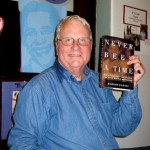A Utopian World Without Police?
Bloodthirsty utopians have a plan. pic.twitter.com/Zl2epBsZGf
— Bret Weinstein (@BretWeinstein) June 5, 2020
This unhinged and dangerous hyperbole would drive out ALL investment and leave us with smoldering carcasses where there used to be imperfect but livable cities. Without police, who would you call when you are carjacked? Carjackings happen in my city neighborhood every couple months. Who is your female friend going to call when someone rapes her? Who will protect the firefighters when your house is on fire? Next time someone puts a gun to your head (which happens periodically in my neighborhood), is the solution to talk nicely with that hoodlum and reason with him? Why aren't we hearing uniform battle cries to reform police departments and demilitarize police departments rather than these disturbingly common demands to kill cops and abolish police departments? I thought that only Trump was capable of such nonsensical blather.
These messages seem to be the far left version of the Libertarian wet dream where all we need to do is abolish government and everything will automatically be great.

